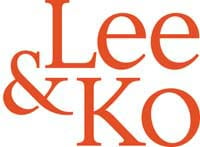Lee & Ko Tax Group is pleased to distribute this Tax Alert Newsletter to our clients and friends of an important tax case recently decided by the Seoul Administrative Court (2019Guhap70643, February 5, 2021) involving certain payment for the purchase of software by a Korean subsidiary to its US parent. This case appears to disagree with the approach taken by another court in a similar matter involving the Korean subsidiary of PTC, the US computer software and services company (PTC Korea Case).
Factual Background
A Korean subsidiary of a US parent (Plaintiff) imported software products such as 3D engineering design software from its U.S. parent and sold the products to domestic plant design companies and shipbuilding companies together with maintenance, repair, consulting, and education services relating to the products.The Plaintiff treated the consideration paid to the U.S. parent for importing the software products as a payment for goods (i.e., as business profits of the U.S. parent that has no permanent establishment in Korea), which is not taxable in Korea pursuant to Article 8 of the Korea-U.S. Tax Treaty. On the other hand, the Korean Tax Authority treated such payment as Korean sourced royalty income since it was consideration paid for the use or transfer of know-how and therefore imposed withholding tax on the income under Article 14 of the Korea-US Tax Treaty.Issue and the Court’s Decision
The main issue of this case is whether the consideration paid by the Plaintiff for the purchase of software should be treated as business profits in the hands of the US parent (not subject to withholding tax) or as royalty income that is received for the transfer or use of know-how and technology (subject to withholding tax).After a detailed review of the facts and circumstances introduced over several stages of litigation, including a methodical explanation by the taxpayer of its business model and how the various software product purchased was actually used by its customers, the Seoul Administrative Court determined that the payment for the software at issue was for the purchase of software products and therefore, should be treated as business profits rather than as royalties.Specifically, the court found that the software at issue in this case was a final product and no right to copy the software was granted and the Defendant failed to prove that any actual modification was made to the products. In this regard, the consulting service that the Defendant raised as demonstrating that know-how was transferred mostly involved nothing more than a mere setting up of installation requirements or a transmission of data irrelevant to the software. In addition, the court observed that the software at issue appears to be widely used by customers who are similarly situated or in similar business sector and further noted the Defendant failed to identify what specific know-how has been allegedly received by the Plaintiff from the U.S. parent. While the Defendant argued that the high price of the software, the obligation to maintain confidentiality, and other company’s withholding on other transactions supported its position, the court ruled that they were insufficient criteria for a judgment in their favor. Another interesting point noted by the court was that the Plaintiff had the status of a distributor and it was not engaged in the business of receiving any nondisclosed source code from the US parent nor had any history of providing modified software to customers.Significance of this Court Decision
The Supreme Court ruled, through a series of decisions it made in the 1990s, on whether the consideration paid for software should be considered as royalty income or not. However, these decisions were brief and lacked detailed technical analysis and legal reasoning. Moreover, the Korean Tax Authority has long chosen to not acquiesce, and instead has continued its program of disputing with the taxpayers on issues involving source and characterization of income under the US-Korea Tax Treaty.In the PTC Korea Case, both the lower court and the high court ruled against the Plaintiff and the case is currently pending in front of the Supreme Court. Although the Korean Tax Authority asserted repeatedly throughout this case that the court should follow the decisions in the PTC Korea Case, Lee & Ko Tax Group successfully presented the relevant and specific criteria that should be applied in this case.In so doing, Lee & Ko Tax Group accurately and clearly analyzed not only the broad legal principle articulated in the existing court decisions regarding what constituted know-how but also persuaded the court that the Korean Tax Authority, not the taxpayer, has the burden of proving that a transfer of know-how occurred. As a result, Lee & Ko successfully persuaded the court to consider all relevant evidence submitted by the taxpayer that the payment at issue was essentially consideration for the purchase of software products and not rush to any decision based on the Korean Tax Authority’s insistence that the PTC Korea decision should be followed. By presenting evidence from every possible perspective, including submission of a video showing an actual demonstration of how the software at issue is applied, the court correctly understood the functionality and purpose of the software - which proved to be critical in this case.Given the enormous amount of taxes at stake, and in light of the PTC Case, this decision provides new hope to taxpayers on their on-going disputes with the Korean Tax Authority. Based on this significant win and prior successes on several recent cases involving interpretation of US-Korea Tax Treaty, Lee & Ko Tax Group is fully prepared to assist taxpayers defend against the Korean Tax Authority’s assessment relating to the business profits vs. royalties issue. For additional assistance, please contact Jay Shim, Sung-Hwan Kim or any tax partner at Lee & Ko.
If you have any questions regarding this article, please contact below:
Jay SHIM ([email protected])
Sunghwan KIM ([email protected])
Hoan Ku LEE ([email protected])
Tom KWON ([email protected])
Ted Tae-Gyung KIM ([email protected])
Sung Hyun RYU ([email protected])
For more information, please visit our website: www.leeko.com
